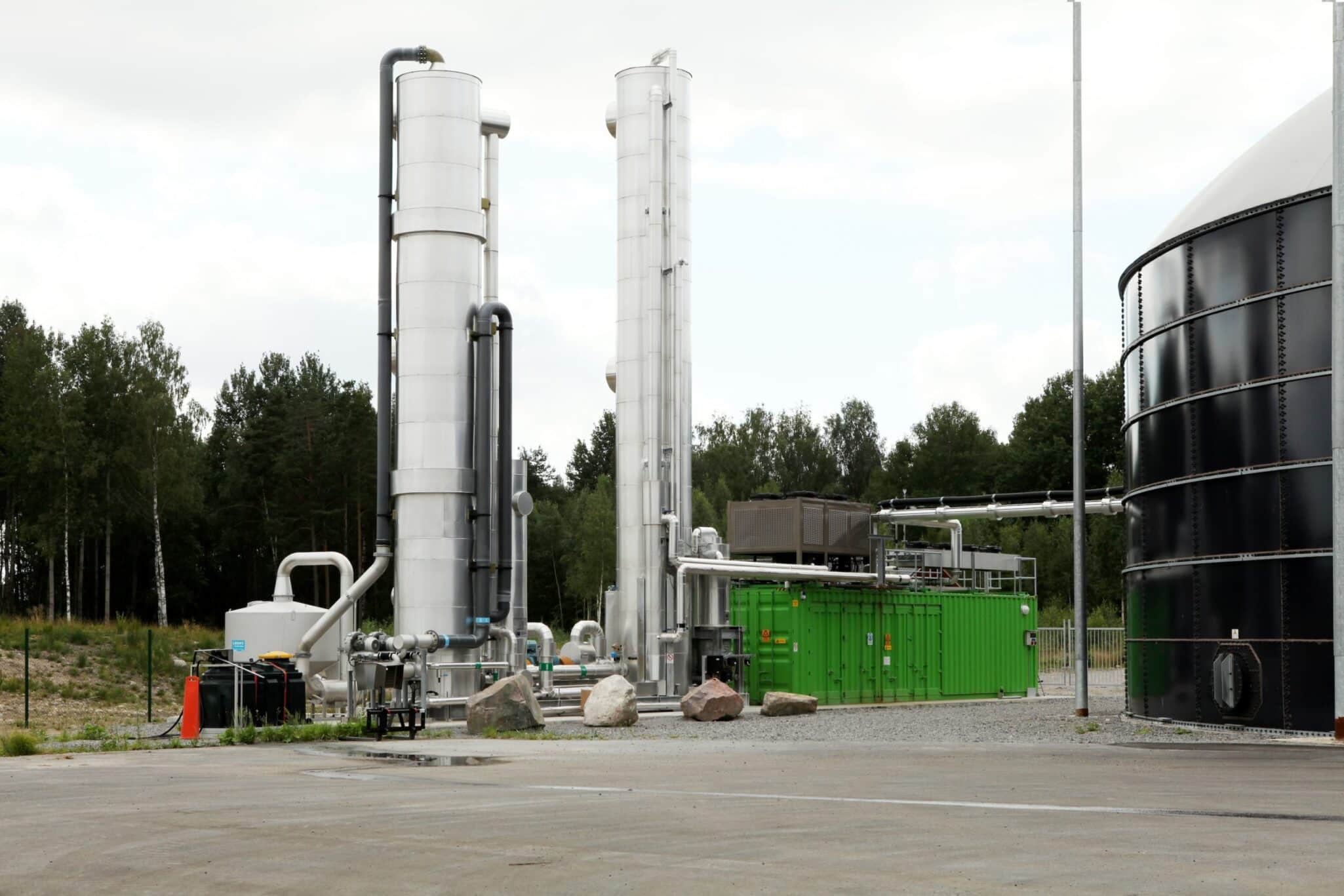Authors: Dr Gareth Mottram and Jon Hughes The global market for biofuels is set for…
Chesterfield BioGas tech to upgrade gas at ReFood Widnes site
ADBA MEMBER PRESS RELEASE
Chesterfield BioGas (CBG) has secured a contract to supply a biogas upgrader to a major UK project for converting food waste to gas for injection into the national grid.
The company sees it as evidence that the market for renewable energy production in the UK is beginning at last to gather some real momentum, after the UK Government clarified the framework of incentives for investors and commercial operators.
The contract, for a ‘Totara’ biogas-to-biomethane upgrader, has been placed by ReFood UK Ltd, for installation on its energy generation site at Widnes on Merseyside. ReFood – the integrated bioenergy arm of the PDM Group – is further developing the site to process commercial and domestic food waste and to supply the upgraded gas for injecting into the national grid.
The ‘Totara’ unit (see image below) will process gas received from an anaerobic digester (AD) at a rate of between 650 and 2000 cubic metres of gas per hour. 29 are currently operating successfully at sites around the world, including 5 working in series at what is currently the world’s largest site for biomethane production at Güstrow in Germany.

Like all CBG upgraders, the unit for ReFood employs the Greenlane® water-scrubbing method which requires no heat and no chemicals to operate, just water, much of which can be re-cycled. Such systems – for which CBG is the sole technology partner in the UK – are the most widely proven in the field, with a model in the range working at one of over 70 sites worldwide.
At Widnes, after the gas has been drawn off, the feedstock residue in the AD will be processed by ReFood to make a nutrient-rich fertiliser for local farmers.
An advanced de-sulphurisation package, also supplied by CBG, removes harmful contaminants in the gas. These arise from variable content of the waste deposited in the recycling bins which ReFood collects. Raw biogas is not dry and also includes volatile organic compounds (VOC’s) which may affect its odour, ruling it out for injection into the national gas grid unless these are eliminated. But the gas that is produced by the upgrader will be odour-free, with a residual oxygen content of less than 1%.
CBG will also provide long-term 24/7 monitoring of the upgrader’s performance. The aftercare includes a planned maintenance programme, and a monthly site visit by a UK-based CBG engineer, for evaluation of operational data and any necessary training of the system’s operators.
CBG, Managing Director, Stephen McCulloch said:
We have been given to understand that our UK presence and the long-term support we offer were significant factors in CBG being awarded this contract.
ReFood already has an established waste processing plant at Doncaster producing gas from food waste by the AD process, but this gas is then used to produce electricity.
But, as Stephen McCulloch observed:
With the Renewable Heat Incentive (RHI) now in place, it has become clear that producing gas for grid injection is a more commercially attractive option – hence the Widnes site will be engineered to include that output.
It has taken some months, following the resolution of the regulations covering biomethane specifications such as oxygen content, to show in orders, but now we are seeing the results of our work in the industry. CBG has a significant pipeline of enquiries for a diverse range of projects, some at advanced stages of negotiation.
What has become clear from this situation is that water-wash technology is now widely regarded as the best solution for larger biogas-producing operation
s. The technology also deals very well with VOC’s important in ensuring it meets the gas safety regulations (GSMR).
CBG expect to install the upgrader at Widnes in April 2014.
